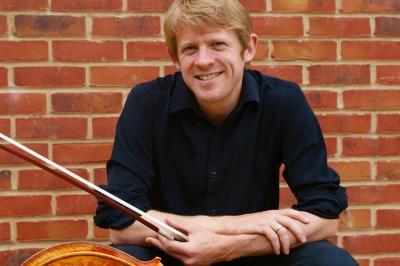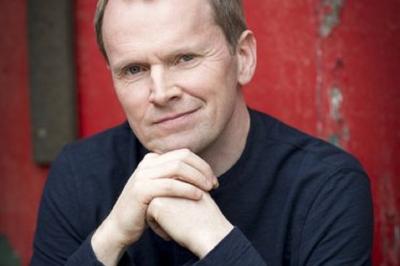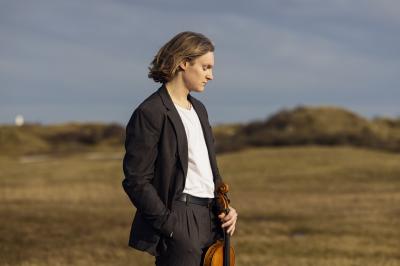Tom Poster and friends
The name Ernö von Dohnányi is not one which trips readily off the tongue, but it is a name which deserves to be better known in musical circles. I was alerted to the brilliance of his piano quintets when one of them was played at a Nairn Performing Arts Guild concert some fifteen years ago. I was struck then by the opulence and lyricism of the music, and I had the same reaction when it was played at the latest Music Nairn concert by Tom Poster and friends. They say it is not so much what you know as whom you know, but in this case both seemed equally important. As a considerable virtuoso on the piano Poster had been able to assemble an ensemble of simply stunning skill and musicality to play this very special concert, and an evening of delights unfolded.
The concert opened with Schubert's charming Sonatina in D major for violin and piano, and it is a mark of this master's skill as a composer that he invests such a slight work with such craftsmanship. Two beautifully modelled movements envelope a slow movement of considerable profundity and poignancy in a perfectly balanced work, and violinist Elena Urioste sympathetically supported by Poster drew a wealth of subtlety from this apparently simple piece of music.
The two were then joined by their three colleagues, cellist Laura van der Heijden, violist Rosalind Ventris and violinist Savitri Grier, for a wonderfully poised and theatrical performance of Schumann's Piano Quintet. Like his essays in the string quartet form, the Piano Quintet is a work of infinite subtlety, with quirky moments of striking originality. The enigmatic in modo d'una Marcia is a case in point where the mood swings between tragedy and ardent romance. There was a beautiful unanimity in the string and piano playing which belied the fact these were not players who were in the habit of playing together – two days of intense rehearsal had clearly built a rapport which would be the envy of many regular ensembles.
For me the highlight of the concert was the Dohnányi Piano Quintet no 1. Surviving improbably into the 1960s (what would he have made of the Beatles?), the Hungarian Dohnányi was mainly famous in his prime as a stunning piano virtuoso, and this tended to overshadow his considerable achievement as a composer, his compositions being wrongly regarded as mere vehicles for his formidable technique. When we listen to them now, the opposite is almost the case as the brilliance of the composition overshadows the awesome demands on the pianist. At times it was hard to believe that only five instruments were playing as the music towered and surged in symphonic proportions, and it was clear that much of the density of texture was being added at the keyboard. Understandably Dohnányi is influenced by Richard Strauss, whose immense compositional facility he shared, but I also heard other influences such as Dvorak and even Puccini. This work had been the main reason for calling the group of friends together, and the immensely powerful performance it received at their skilled hands more than vindicated the ambitious project.
Enthusiastic applause elicited a deliciously laid-back performance of an arrangement of Gershwin's mellow number 'You can't take that away from me', into which the musicians swung themselves with as much enthusiasm as the rest of the programme, and which sent us all home with a shimmy in our step.
Forthcoming Events






